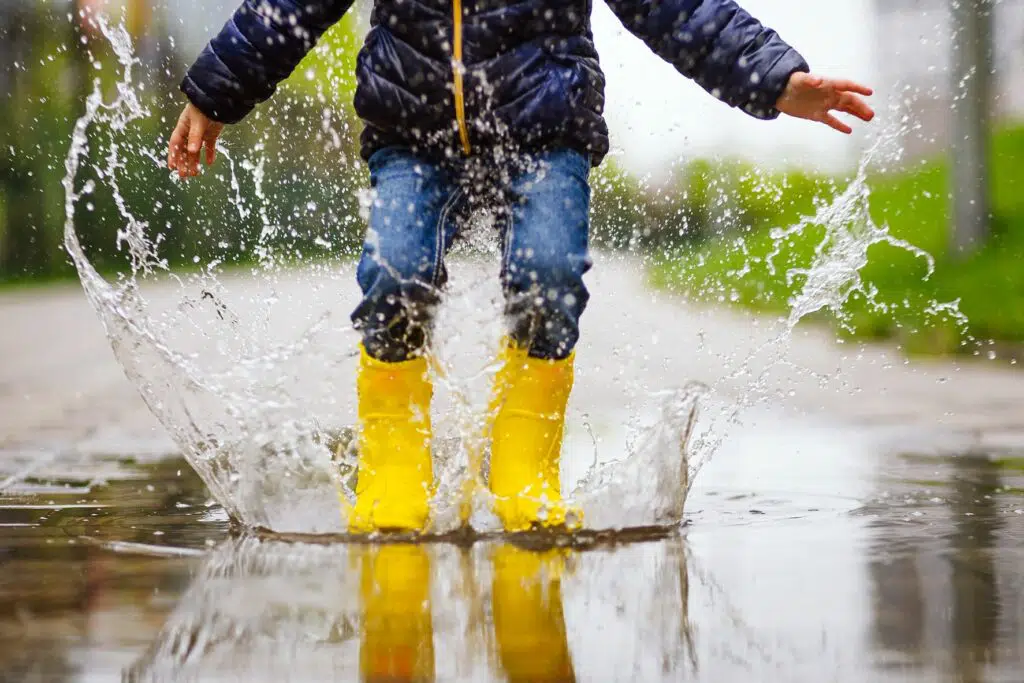The Unstoppable “Reset” Mindset
Reset is for anyone who knows the strain of balancing life on the tightrope of being everything to everyone.

When talking online with a 5th-grade boy recently, he said: “My friends and I thought that being off school would be really fun. Actually, it’s not.” I validated his reality and then mentioned that a lot of parents were feeling the same way. While we know that a sick member of the family needs to be isolated, that leaves the rest of the clan stuck with each other for hours on end. Unlike summer break, you don’t have the plethora of camps and community rec centers to break up the monotony of it all. Even for parents who love hanging with their kids, you can only take so much family time before you start to get stressed.
Adults generally find that routines help us be more efficient. While we might like routines, children NEED them. Sit down with your children and map out how the days will flow. Set up specific times for reading/homework, chores, independent free time, mealtimes, family time and bedtime. Have your child write it down and decorate the chart. Then, post the schedule on the fridge.
Make sure your children know that you will plan blocks of time for yourself and that they will need to self-entertain. This will give you time for needed chores and your own mental-health time. Have several a day and work in times for your own self-reflection, checking in with other parents over Zoom and exercise or couple time. While these time segments will be shorter if you have preschoolers, make sure your children know that disturbing your time will result in a loss of privileges.
Being outside in fresh air has enormous physical and mental health benefits. While children might complain about not knowing what to do, they will quickly find something to explore or create while outside. They also will love just running around. For those in shelter-in-place, a fenced-in backyard is your safest choice. If the weather or your living arrangements don’t allow for outside play, try creating one room in the house where kids can just have free play and can make a mess. While the rest of the house stays normal, this is the place for unbridled indoor fun. You can also set up Zoom sessions for your children and their friends. This is also a great time to break out old hobbies and jigsaw puzzles.
Typically, I recommend that families have limit gaming to 30 minutes during the school week and several blocks of gaming time on the weekends. Given these circumstances, I’d probably go with expanded weekend rules just to help you and your kids survive. Three to four 45-minute blocks are easier on brain than one long binge round. After you pry them away from their hyper-focused state, you’ll pay the price in your child’s moodiness. The same is true for TV viewing. On your family chart, place these blocks after things like reading/schoolwork or chore time.
For teens, they will benefit from having contact with their friends over their devices. Make sure, however, to have no smartphone time during reading/study segments, family mealtime and when they turn in for bed. You don’t want them up all night communicating.
This is the perfect time to get out all those old-fashioned board games. You’ll have a lot of fun just playing and laughing. Even older teens and college students will engage in the fun as they remember times from earlier in their lives. Watch TV together or share an electronic game or two. This would also be a great time to watch old family videos or look at photo albums. Connecting with happier times is always good for our mental health.
While it might be tempting for your older children to stay up late every night and sleep late every morning, that’s not going to be beneficial to their physical and mental health or routine, once it resumes. You’ll also be left with very moody children the next day. Stick with your bedtime schedule. Don’t forget to enforce no screen time one hour before bed.
Rather than being on the phone or social media all day long yourself, try to schedule set times to check in with your adult friends. You can also consider setting up a Zoom community of friends where you can have a designated time to check-in with each other. This is also a great place to share your emotions with other adults so that you can in turn help your children process their emotions.
For your own mental health, and that of your children, titrate the intake of news. Constantly following the latest Coronavirus news will only increase the entire family’s anxiety.
Set aside family time to talk about how everyone is feeling and coping with the outbreak. I’d suggest doing this at the dinner table or after dinner. It’s important to acknowledge not only their anxiety but also their loss and grief about upcoming trips and school programs on which they will be missing out. As our social distancing continues, you will also need to validate their feelings of irritation and anger. Then, turn to your family game time and your usual routines. Children need to learn how to block out their anxieties/stress and experience a sense of normal. It’s getting back to those routines that help us survive.
Families around the world are now on a new journey. While we like to have things planned out, think of this as a vacation where you have a general idea of where you are heading, and rules for behavior, but are going to just see where the wind blows while keeping up on daily updates on governmental announcements. The key is to have an adventure mindset where whatever comes your way, you will try and embrace it with new opportunities for creativity and fun. Even when things didn’t work out as planned, I’ve had some of the most memorable experiences with my children when we got lost, stuck in traffic, or stranded on the side of a mountain road. Don’t let negativity and complaining take hold. Instead, help your kids figure out a way to embrace what’s happening. Check out all the on-line and print materials on how parents are making the best of it. One of my clients told me about how his dad pulled out the camper and they all piled in. They drove ten minutes away and parked it. They then had dinner, watched a DVD movie and drove back home.
Finally, even in the hardest times, this is still an extra opportunity to spend time with your children. Never wish a moment away, because 20 years will pass in a blink of an eye and you’ll be longing for these times. I learned a great lesson from my mother anytime the power would go out. She and my dad would gather us five kids by the fireplace for warmth while we snuggled together under blankets. While us kids were always glad for the power to come back on, she was always disappointed, longing for more time with us.
Sure, we are supposed to socially distance ourselves, but that doesn’t mean we can’t help our friends and neighbors. This is a good time to buy gift cards from your local shops and restaurant to help them bridge the gap. Your neighbor across the street might need a food delivery, a flower basket, or just a wave through their front window. Our daughter had a plastic bag-lined trash can out front to collect used shoes for children in need. Getting involved and expressing our empathy helps us all.
In closing, it’s important to remember that this is an unprecedented time for all of us so it’s important to go easy on yourself. While I typically recommend that parents try and be 80% consistent with their parenting strategies, this time will be one where you will need to let some things go. It’s ok; this is a parenting experience to which we are all trying to adjust. If you can hit 65% consistency, that’s great. If you have pre-scholars, 51% is good enough. Just do your best until the Coronavirus runs its course.
# # #
Craig A. Knippenberg, LCSW, M.Div., has provided child and family counseling services for more than 35 years and is the founder of Knippenberg, Patterson, Langley and Associates, one of Colorado’s largest private practices (www.CraigKnippenberg.com). Experts for this article were taken from his new book Wired and Connected: Brain-Based Solutions To Ensure Your Child’s Social and Emotional Success (Illumify Media Global, 2019) www.wiredandconnected.com. You can also check out his blog at: www.adventuredad.org.
Join Knippenberg and other mental health experts live on Facebook each Tuesday from 9:30-10:30 am MST for informative ideas, strategies and Q&A about parenting during the coronavirus pandemic. Visit www.craigknippenberg.com or on Facebook @coloradomentalhealth.
Reset is for anyone who knows the strain of balancing life on the tightrope of being everything to everyone.

Activities that involve pushing, pulling, or carrying provide proprioceptive input, which has a calming effect on the nervous system...

What is VO2 max? VO2 max is a measurement of the maximum amount of oxygen your body can utilize during intense exercise.
